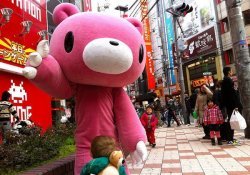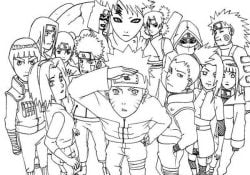Did you know that among the countless japanese language particles, there are those that are not very well known, but that, despite being rare, still appear from time to time in newspapers, games, manga or during our studies of the language. An example of this is the べ (be) particle, which we will look at in more detail later in this article.

Índice de Conteúdo
uses and meanings
If you already have any language knowledge, you probably already know that every particle in the Japanese has a function and/or an idea to be passed to the sentence in which it is inserted. THE partícula で (de), for example, indicates the place or the means by which an action is performed, whereas the particle に (ni) indicates the direction (although it still has many other uses) or what an action is done for, and so on...
The べ (be) particle, on the other hand, is a type of particle called the “end-of-sentence particle” – like the な、ね、わ、ぜ、ぞ、よ particles (na, ne, wa, ze, zo, yo) – and which comes from specific dialects, being most commonly seen in Tohoku (northern region of Japan) and in Kanto.
It basically has three functions: indicate speculation (uncertainty), indicate a will, and/or suggest an invitation.
In many sentences it is possible to observe the presence of particles さ, よ and か (sa, yo and ka) after the particle べ (be), composing the pairs べさ (besa), べか (beka) or べえか (beeka ) and べよ (beyo).
example sentences
Below are some example sentences with the particle be (べ):
- でもよ、おとうさんは良い気しねーと思うべさ. But still, I don't think daddy is going to like it...
- 俺が負けるわっきゃねーべ。Well... I can't lose, can I...
- 大したことでもねえべ。It's not a big deal, right...
- 明日は学校だから朝早く起きんべ。Tomorrow, as I have class, I will (I feel like it) wake up early.
Vocabulary
- 助詞 (じょし, joshi) = Particle.
- 例文 (れいぶん, reibun) = Example Sentences.
- 日本語 (にほんご, nihongo) = Japanese language.
- 言語 (げんご, gengo) = Language, Tongue.
- 言葉 (ことば, kotoba) = Word.
- 語彙 (ごい, goi) = Vocabulary.
Note: This article may be updated according to new information about this grammatical particle.
What's up? Did you like the article? Comment, like and share on social media!




